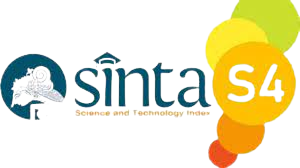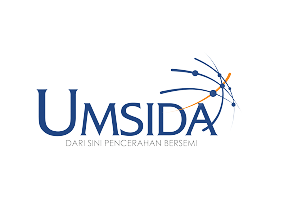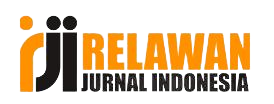Bisnis Alternatif Perempuan di Era Informasi
Women's Alternative Business in the Information Age
DOI:
https://doi.org/10.21070/jkmp.v5i2.1311Keywords:
women, alternative business, online businessAbstract
In order to support its roles in the domestic and public sectors, many women have the ability in using information communication technology. In the other hand, women are still exposed to gender imbalances. The position of women is not only different, but also lose or less unequal than men. This approach used descriptive qualitative to describe alternative business that gotten by women to get justice through online business. The development of information technology brings a new atmosphere, where previously the women work offline to online. Business is developed by women such as making cakes with known brands as Kampung Roti, clothing, marketing of Lapis Surabaya cake, and knitting. Starting an online business is not easier for women, struggling to master technology is not easily where women have to be familiar with software and hardware. They should also search the network to find customers and highlight their own business. Women should organize their online businesses with a technique, having the financial capital, searching the models, materials, mastering selling buying online systems, moreover also finding out what opportunities are available. Through information technology, women who work online can get equal position with men
References
Andrew, C., Codrre. C & Denis, A. 1990. Stop Or Go : Reflections If Women Manager On Factors Influencing Their Career Development, Jurnal Of Bussiness Ethics. Hlm. 21.
Bell, Daniel. 1976. The Coming of Post-Industrial Society: A Venture in Social Forecasting. New York: Basic Books.
Bruhn, John G. 2005. The Sociology of Community Connections. New York:Kluwer Academic/Plenum Publishers
Beauvoir, Simone de. 1953. The Second Sex. London : Pan Books Ltd. Hlm. 200 – 220.
Castells, Manuel. 2000. The Rise of the Network Society: The Information Age: Economy, Society and Culture Vol. I. Oxford, UK: Blackwell.
Castells, Manuel. 2010. The End Of Millenium : The Information Age: Economy, Society and Culture Vol. III. Oxford, UK : Blackwell.
Castells, Manuel. 2010. The Power Of Identity: The Information Age: Economy, Society, and Culture Vol II. Oxford, UK : Blackwell.
Cawkell, A.E. 1987. Evolution of An Information Society. London: Aslib, The Association for Information Management.
Data Strategis BPS 2010 - Badan Pusat Statistik. (2012). Tesedia pada www.bps.go.id/65tahun/data_strategis_2012.pdf.
Darwin, Waizly. 2011. Anxieties/Desires: 90 Insights fow Marketing to Youth, Women, Netizen. Jakarta: Gramedia Pustaka Utama.
Entertainment.kompas.com. Belanja dan Jualan Online Dunianya Perempuan. Tersedia pada http://entertainment.kompas.com/read/2011/05/20/13024473/Belanja.dan.Jualan.Online.Dunianya.Perempuan female.kompas.com. 2012. Ingin Berbisnis Online Baca ini. Tersedia pada http://female.kompas.com/read/2012/09/17/17075599/Ingin.Berbisnis.Online.Baca.Ini.
Friedan dalam Tong, Rosemarie Putnam. 2006. Feminist Tought : Pengantar Paling Komprehensif kepada Arus Utama Pemikiran Feminis. Yogyakarta : Jalasutra. Hlm. 43.
Haryanto, Edy. 2008. Teknologi Informasi dan Komunikasi: Konsep dan Perkembangannya. Pemanfaatan Teknologi Informasi dan Komunikasi Sebagai Media Pembelajaran
Jurnal Pengkajian Koperasi Dan UKM Nomor 1 Tahun I–2006, http://www.smecda.com/kajian/ files/jurnal/Hal_136.pdf
Kuper, Adam & Jessica Kuper. 2008. Ensiklopedia Ilmu-Ilmu Sosial. Jakarta: Raja Grafindo Persada.
Manafe, Dina. 2014. Melalui http://www.beritasatu.com/nusantara/169294-microsoft-gandeng-iwapi-bekali-perempuan-dengan-ti.html.
Nasrullah, Rulli. 2012. Komunikasi Antar Budaya Di era Budaya Siber. Jakarta : Kecana Prenada Media Group
Ollenburger, Jane C. & Helan A. Moore, 1996. Sosiologi Wanita. Jakarta : Rineka Cipta. Hlm.39-44
Piliang, Yasraf Amir. 2004. Dunia yang Dilipat: Tamasya Melampaui Batas-batas Kebudayaan. Yogyakarta: Jalasutra.
Ritzer, George & Douglas J.Goodman.2008.Teori Sosiologi Dari Teori Sosiologi Klasik Sampai Perkembangan Mutakhir Tori Sosial Postmodern. Yogyakarta: KreasiWacana.
Ritzer, George& Barry Smart. 2011. Handbook TeoriSosial. Bandung : Nusa Media
Riyanto, Armada. 2011. Aku dan Liyan : Kata Filsafat dan Sayap. Malang: Widya Sasana Publication. Hlm. 52.
Sadli, S. 1993. Wanita Karir dan Peranannya Dalam Meningkatkan Kualitas Sumberdaya Manusia, Makalah Seminar Nasinal Peran Strategis Wanita dalam Sumberdaya Manusia. Surakarta : Fakultas Ilmu Sosial dan Politik, Universitas Selamet Riyadi , Hlm. 69.
Subono, Nur Iman. 2001. Perempuan dan Teknologi. Dalam Jurnal Perempuan No. 18. Jakarta: Yayasan Jurnal Perempuan. Hlm. 11.
Sugihartati, Rahma. 2014. Perkembangan Masyarakat Informasi dan Teori Sosial Kontemporer. Jakarta : Kencana. Hlm. 67.
Sugiyono. 2007. Metode Penelitian Kuantitatif, Kualitatif, dan R & D. Bandung : Alfabeta.
Tong, Rosemarie Putnam. 2006. Feminist Thought. Pengantar Paling KomprehensifKepadaArusUtamaPemikiranFeminis. Yogyakarta: Jala Sutra.
Wahid, Fathul. 2011. Melalui http://fathulwahid.wordpress.com/2011/04/26/perempuan-dan-teknologi-informasi/
Webster, Frank (ed.). 2004. The Information Society Reader. New York: Routledge.
Webster, Frank. 2006. Theories Of The Information Society. London: Routledge.
Wolf, Alecia. 1998. Exposing the Great Equalizer: Demythologizing Internet Quity. Dalam Cyberghetto or cybertopia? : race, class, and gender on the Internet / edited by Bosah Ebo. Westport: Praeger Publishers http://books.google.co.id/books?hl=id&lr=&id=HSBJ-geXmNAC&oi=fnd&pg=PA15&dq=studi+alecia+wolf+(1998)&ots=gVsruQ5okp&sig=aPW9bwZQC0PYBevJvyhe-amMy30&redir_esc=y#v=onepage&q&f=false
















